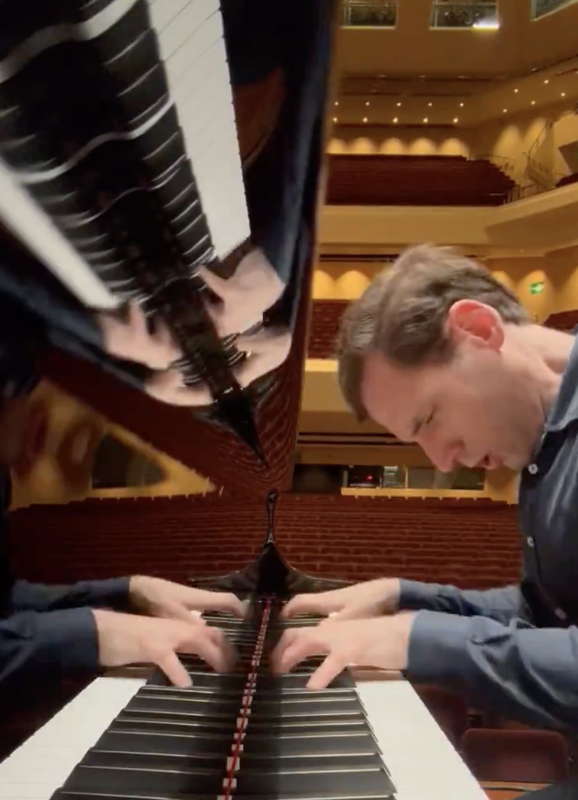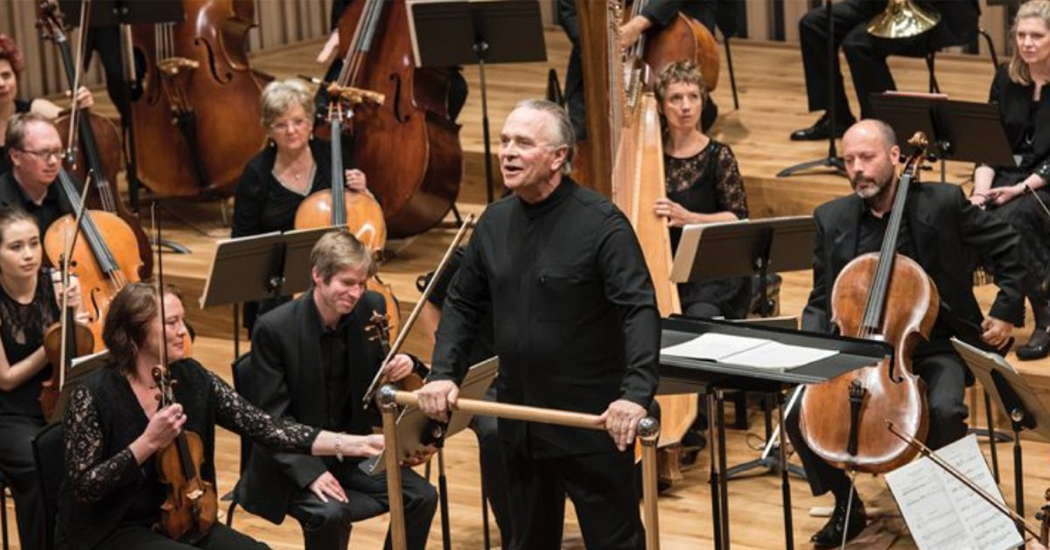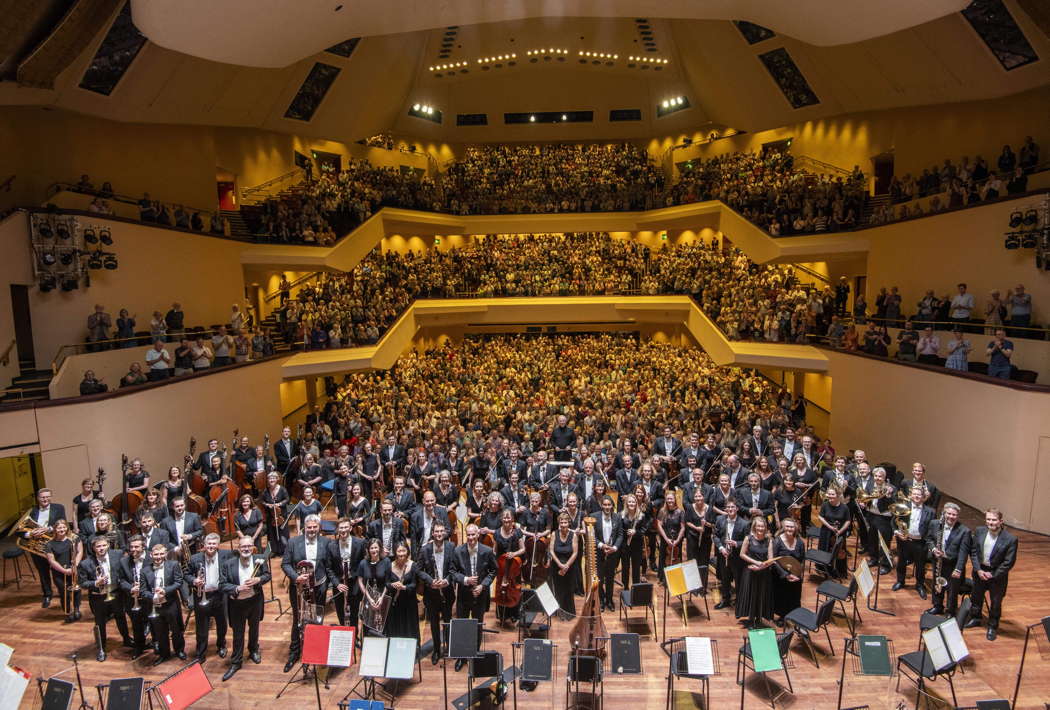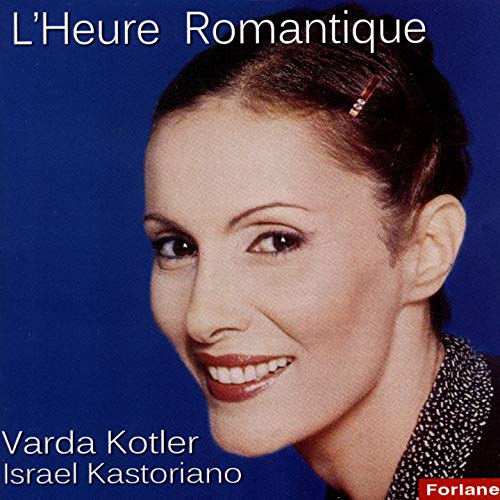- Eduard Hanslick
- Lamberto Puggelli
- Josef Haydn
- Riccardo Simonetti
- William Crotch
- Aleksey Nasedkin
- Choir of Durham Cathedral
- Conservatoire Populaire
Touchingly Apt
MIKE WHEELER was at Nottingham Royal Concert Hall's farewell to Mark Elder as he steps down as musical director of the Hallé Orchestra
As he steps down as Musical Director of the Hallé Orchestra, Sir Mark Elder has already taken his leave of the orchestra's home city, Manchester. The BBC Proms and the Edinburgh Festival are still to come, but this time, it was the turn of Nottingham's Royal Concert Hall, where the Hallé has held a residency since 2002 – Royal Concert Hall, Nottingham, UK, 27 June 2024.
Soloist Boris Giltburg's incisive first entry in Rachmaninov's Piano Concerto No 1, and the warm string tone in the lyrical theme that follows, set down markers for the performance's expressive range. Orchestra and soloist nimbly slalomed between scampering energy – not least in Giltburg's coruscating finger-work – and singing lines. In the cadenza, Giltburg was fierce and delicate by turns, and the ending was crisp and incisive.

Boris Giltburg rehearsing Rachmaninov
in Nottingham's Royal Concert Hall
for the 27 June 2024 performance
Laurence Rogers' gentle horn solo at the start of the second movement was matched by his woodwind colleagues, before Giltburg's inwardness and concentration. Elder steered the performance through some compelling moments of brooding stillness, and at the movement's tranquil close, stopped horn notes added striking points of colour.
The exchanges between piano and orchestra that galvanise the finale into action crackled with energy, leading to one of the composer's typically expansive big tunes. As the movement proceeded, orchestral colours flashed and sparkled, and Giltburg again demonstrated his ability to turn, expressively, on the spot, from playful to incisive to lyrical.
Mahler's Fifth Symphony is the constant factor in Elder's final run of concerts in his current post. Gareth Small's opening trumpet fanfare was much an invitation as a command. After the full-orchestra outburst, the string theme was both plangent and restrained, but there were further eruptions to come, breaking through the funeral march ceremonial with bitter intensity.
The vividness of the orchestral playing continued to produce striking moments in the second movement – the furious initial section collapsing in a shower of tumbling woodwind figures, barking horns, cello phrases searching for a way through – the disjunction illustrating an important facet of Mahler's influence on later composers. After an unexpectedly bouncy moment, it all turned frantic again, before the D major chorale, a starburst pointing to the end of the symphony, and which didn't play all its hand at once here. Through it all ran Mahler's ferocious energy, before it falls apart at the end.
The third movement got off to a nicely relaxed start. Laurence Rogers' horn obbligato, for which he stood throughout, acted as a central reference-point to the swirling dance-rhythms, earthy ländler fusing with gracious waltzes. Further striking imagery included echoes passed between Rogers and his horn colleagues, and his later dialogue with trombonist Katy Jones, the pin-point precision of the strings' pizzicato passage, and some typical Mahler forest scenes, where the amiably rustic merges with the just plain weird. Orchestra and conductor made sure it was all rounded off in high spirits.
The Adagietto is any string section's big moment, and the Hallé players seized in full their chance to shine. They began in utter stillness, going on to explore a dynamic range from barely whispered to full-throated, touched off by harpist Marie Leenhardt's resonant points of colour, and anchored by gutsy double-bass tone at the final climax.
The simple joie de vivre launching the finale may be more knowing than it seems, but it was the perfect answer to the first two movements. Passages of vigorous counterpoint were superbly focused, and just when you thought the performance had no more energy in reserve, there it was, all the way to the dazzling climactic reprise of the second movement chorale.

Mark Elder and members of the Hallé Orchestra
Afterwards, the Royal Concert Hall's Music Programme Manager Neil Bennison led a presentation to Sir Mark, including a framed calligraphed record of the concerts he has conducted here during the Hallé Orchestra's residency – all forty-three of them, and there was a photo-call for everyone in the hall, audience included.

The photo-call for Mark Elder's Nottingham farewell on 27 June 2024
Elgar is a composer conductor and orchestra have consistently championed, and Chanson de Nuit was a touchingly apt way to sign off a memorable evening.
Copyright © 3 July 2024
Mike Wheeler,
Derby UK





